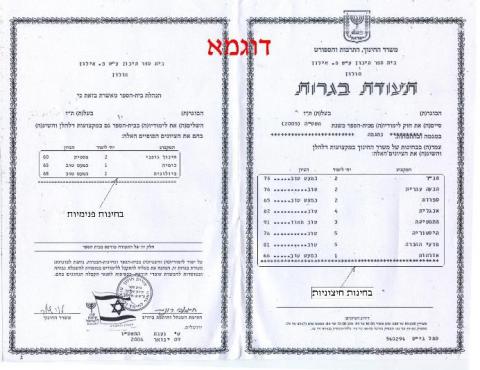Number of matriculating Israeli students nudges up to just under 50%
Among all 12th graders, the percentage of those studying on an academic track dropped slightly to 79.7 percent in 2011-2012 compared to 80.4 percent in 2010-2011, which was in turn a drop from 82.3 percent in 2009-2010. The percentage of the entire age group that actually took matriculation exams was 71.5 percent, the same as in 2010-2011, but this was nonetheless lower than 74.4 percent in 2006-2007.
During the press conference, both Piron and Sa’ar, who is now interior minister, referred to Piron’s recent decision to suspend the Meitzav standardized achievement tests, which overruled Sa’ar’s long-standing policy.
Regarding their differences, Piron told reporters, “The disputes between myself and the former minister cannot disappear from the public arena and it’s important that they be conducted respectfully and politely.” Last week Sa’ar criticized Piron’s decision on the Meitzav tests, which are administered to elementary school pupils, telling Army Radio that “whatever is not measured cannot be managed” and accusing Piron of replacing hard work with “butterflies and fairy tales.” Piron suspended the exams because he believed they were skewing the learning process, harming weaker schools, and undermining teachers’ motivation.
“But today is a day of thanks,” Piron continued, referring to the improved matriculation figures. “Today I want to thank all the teachers in Israel and the pupils, whose parents can be proud of.”
Sa’ar commented on Piron’s plan to reduce the number of matriculation exams, which may lead to the cancellation of the exams in Bible, history and literature. He said he opposed the plan because “the humanities have been eroded over the years, partially because they have suffered from reduced study hours. These are not measurable subjects and they’ve been eroding in academia as well. But the humanities are the infrastructure of society, which is why they are no less important than other [subjects].”
Yarden Skop

